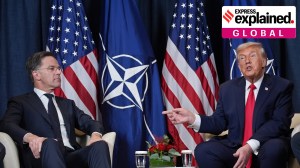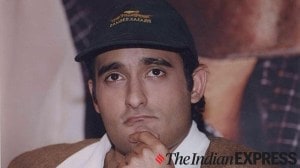All that glitters
Apropos Sanjaya Baru8217;s article 8216;Shining from within8217; IE, December 27, the Mahalanobis model in the fifties en...

Apropos Sanjaya Baru8217;s article 8216;Shining from within8217; IE, December 27, the Mahalanobis model in the fifties envisaged a low rate of growth in the beginning and an accelerated rate of growth afterwards.
The so-called Indian 8216;8216;diaspora8217;8217; is the creation of heavy investment in higher technical education to produce the high priests of Nehru8217;s temples of modern India. The rate of growth of the Indian economy would have been greater today if the public sector had grown at the expected rate. Nehru thought at that time, 8216;8216;our pains are pains of growth8217;8217;. The main defect of the model was that it presumed an organised economy. But the greater part of the Indian economy is unorganised.
It was expected that the problem of poverty could be tackled by a percolating effect and for the time being doles and concessions created by a fiscal deficit were prescribed for the poor. Poverty as well as fiscal deficits grew simultaneously and the whole growth process would have been throttled had there been no green revolution. Manmohan Singh rescued the monetary sector from imminent collapse in the nineties.
Nobody can deny that Atal Bihari Vajpayee is trying hard to turn the wheels of the Ramrath from the Ayodhya road to the development road. But still, the present bubble could burst any time if the vast unorganised sector is not integrated into the planing process and the fiscal deficit curtailed.
8212;M.K. Mahapatra Pune
First among equals
8226; Getting perturbed over a query about the stand of other political parties regarding her leadership, Sonia Gandhi said: 8216;8216;Whether I am acceptable as the prime minister is a choice that has to be made by the people of this country and not by me8217;8217; 8216;Sonia for alliance first, leadership later8217;, IE, December 29.
She should not have overlooked the fact that in our system the prime minister is never the choice of the people but is nominated and imposed by the party high command in case of a single party or by the coordination committee in case of an alliance forming the government 8212; in fact, at times the incumbent doesn8217;t even belong to the largest party in a coalition.
8212;M.C. Joshi On e-mail
State of decay
8226; The Congress has no locus standi as of today in Uttar Pradesh politics 8216;In UP, Mulayam ignores Cong call for Kalyan ouster8217;, IE, December 29. The party is in a miserable condition in the state. Instead of talking of the BJP being a communal party, the Congress should first get its house in order or else it could be eclipsed from the national scene.
8212;Sudhaksr Sathe On e-mail
Lyngdoh8217;s charge
8226; I think Chief Election Commissioner J.M. Lyngdoh8217;s views are justified 8216;Cancerous cynicism8217;, IE, December 27. So what if he paints the entire lot of politicians with the same brush. This 8216;8216;cynicism8217;8217; of Lyngdoh8217;s that you so dislike comes from his factual understanding of the Indian politician.
Let8217;s not berate the tiny 8216;8216;educated and aware8217;8217; percentage of the Indian populace. Let us hope that more Indians demand change, as soon as possible.
8212;Ajay Poduval On e-mail
Free at last
8226; It is good that the Indian Institute of Management, Ahmedabad, has finally decided to cut the financial umbilical cord with the government 8216;Enough! IIMA rejects govt cash8217;, IE, December 28. It is time they also looked at discarding all financial ties and freeing themselves from the neta-babu stranglehold that has destroyed most of India8217;s other institutions.
8212;Chandu Nair On e-mail
- 01
- 02
- 03
- 04
- 05































